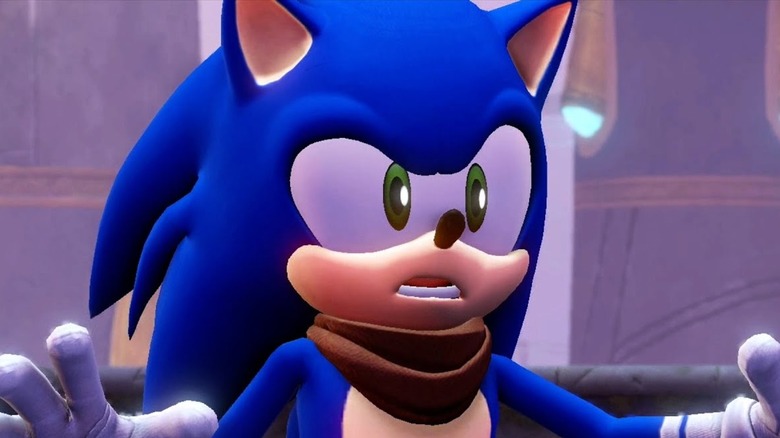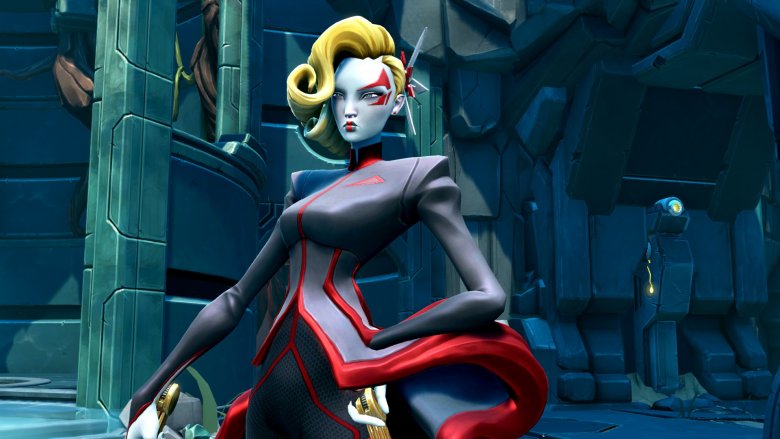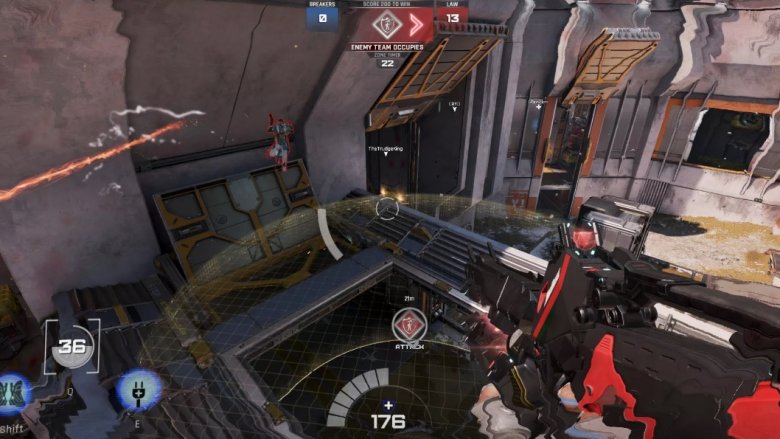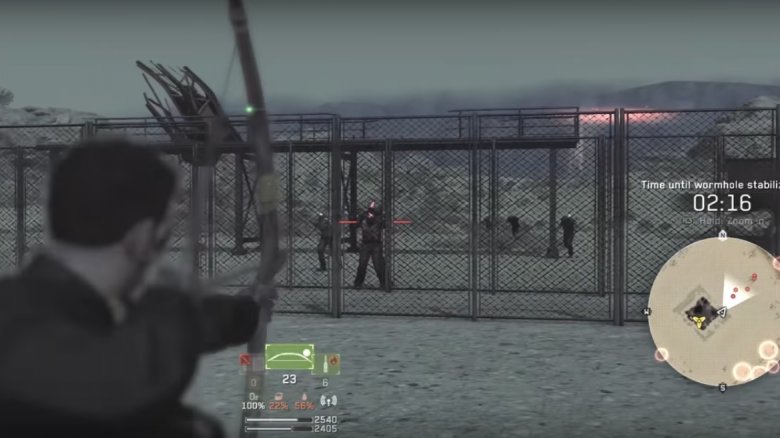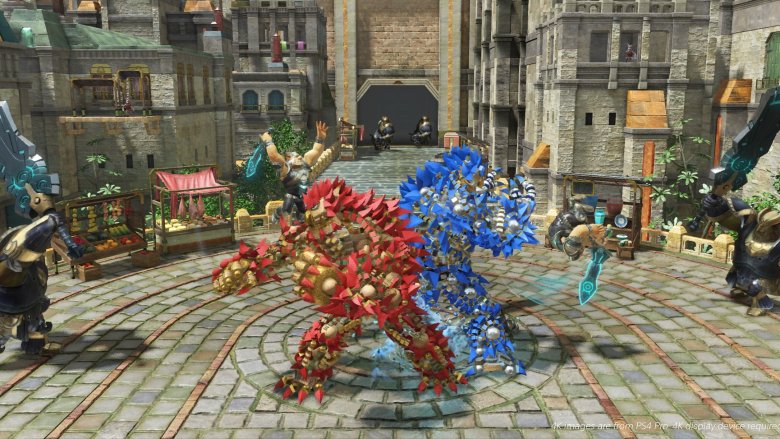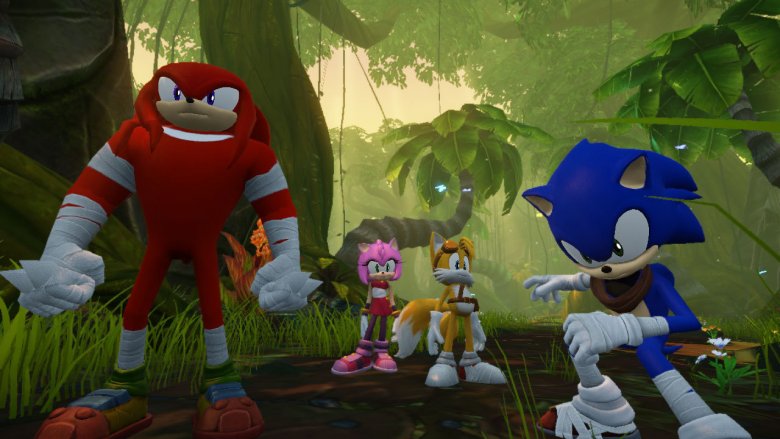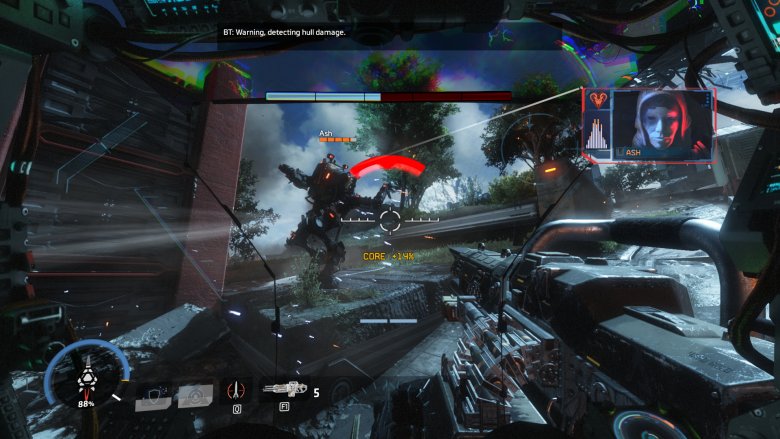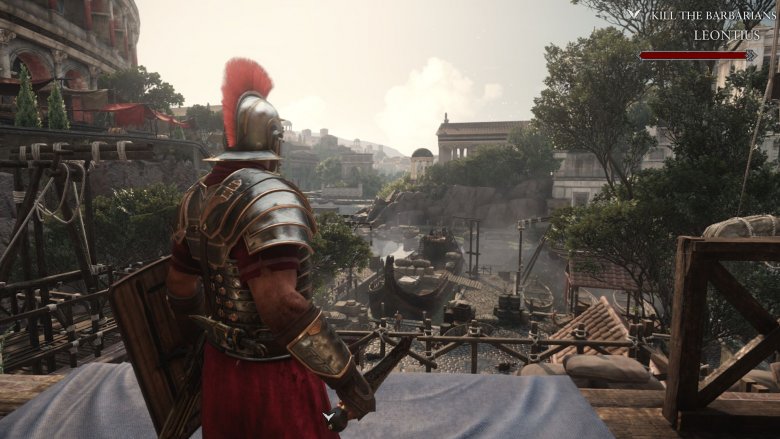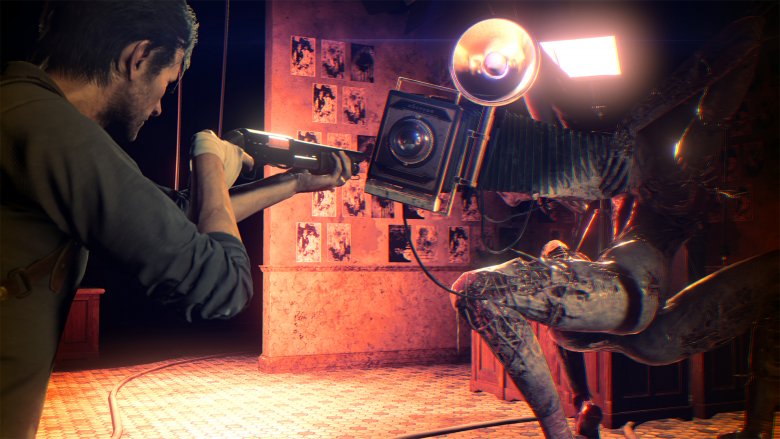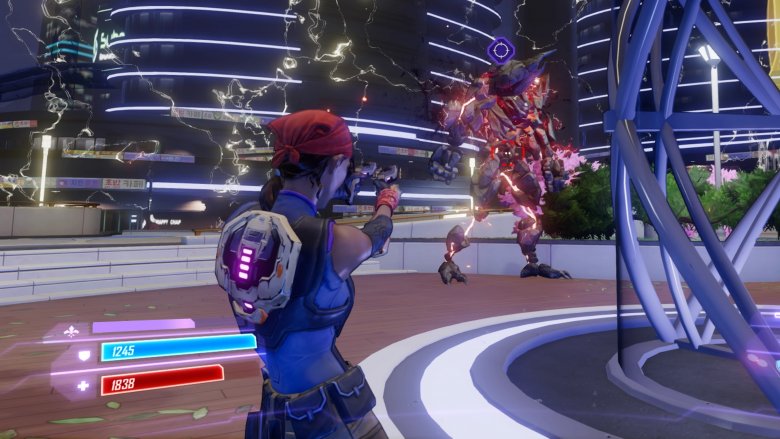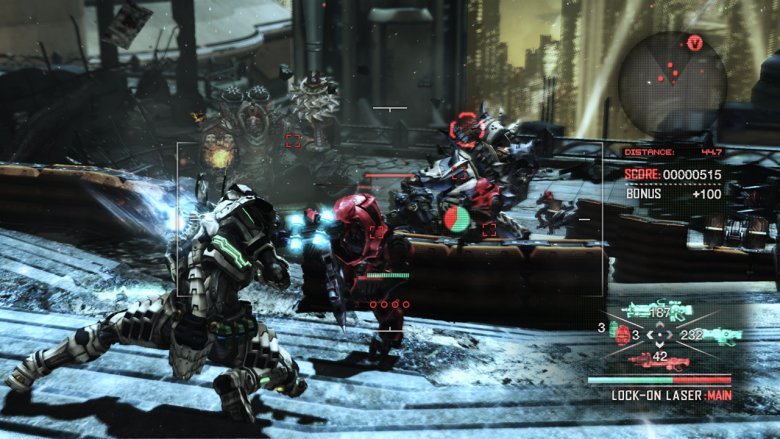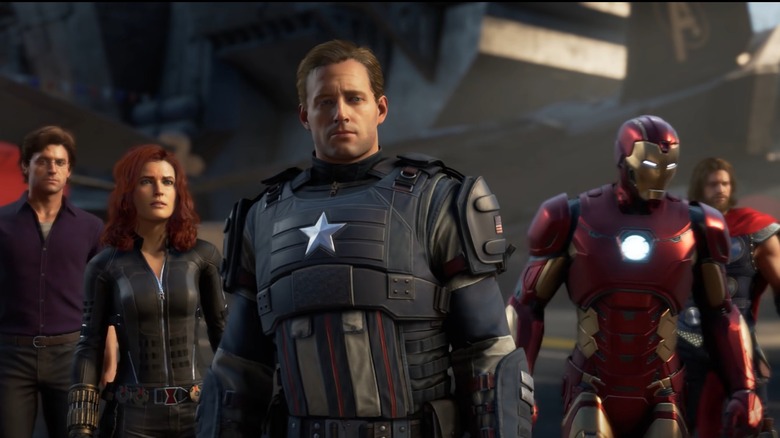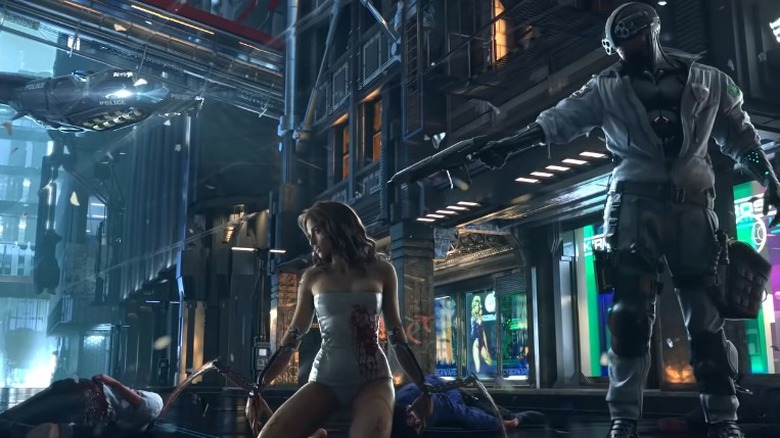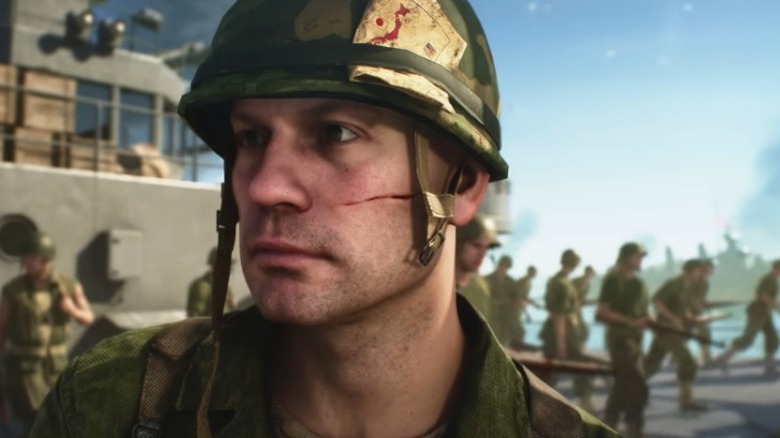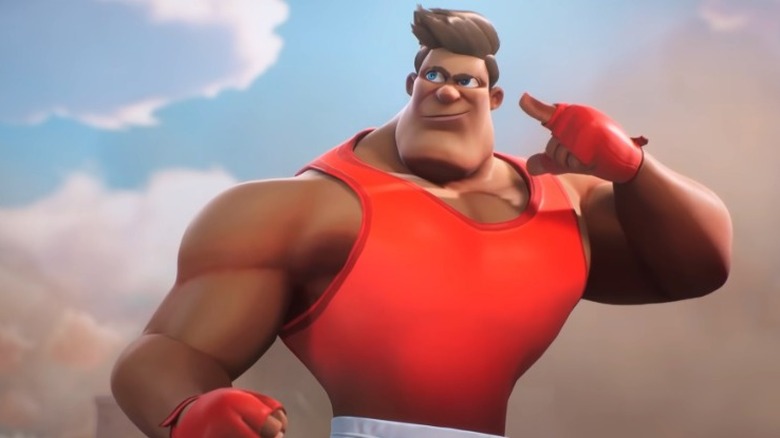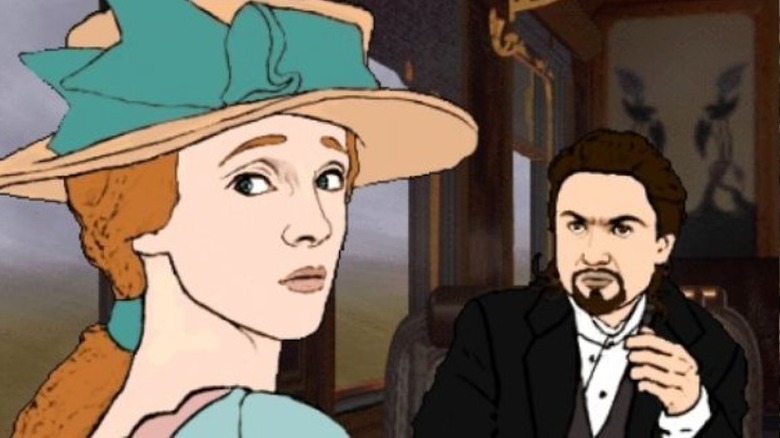Games That Flopped Almost Immediately
Whether a game is good, bad, or even legendary has little bearing on its ability to perform in the marketplace, unfortunately. Major franchises will always dominate sales charts, regardless of quality (looking at you, Call of Duty), with their heavy-hitting, paint-by-numbers installments regularly quashing out the competition in its entirety. Among these defeated competitors are a grab bag of hidden gems, forgotten sequels, and even a few truly bad games.
What unifies these titles, regardless of their differences, is the fact that they entered the world with hope and a chance at success ... then launched and bombed, hard. Whether their online lobbies were empty from day one or their release week's sales figures were low enough to be mistaken for a fast-food employee's annual salary, the fact of the matter is that these games never made a meaningful dent on the gaming scene. So, without further ado, get ready to see some of gaming's most painful flops — all of which came out of the gate with a thud.
Battleborn died at birth
"Battleborn" was an unfortunate casualty in the hero shooter genre. Releasing on May 3, 2016, the game had just over three weeks to rack up a few sales before Blizzard's behemoth, Overwatch, came in on May 24 and stole every last bit of the game's all but nonexistent thunder. Gearbox's release strategy for "Battleborn" was foolhardy: with less than a month of a gap, Gearbox thought it could go up against a Blizzard release, the likes of which had exponentially more press and hype going for it.
This wouldn't have been an issue, per se, if both games weren't competing for a spot in the exact same (at the time) niche genre. Yet, they were, which prompted a classic struggle-for-dominance situation, wherein the top dog (Blizzard) mercilessly crushed the scrappy upstarter (Gearbox) out of existence. On the same week that "Battleborn" released across all platforms, Blizzard unleashed the open beta for "Overwatch," which lured in 9.7 million players globally. Compare that the "Battleborn" all-time high PC player count of 12,000 people, and, well, it's clear that this game was fighting an opponent in an entirely different league.
Truth be told, "Battleborn" never really got a chance to live. Blizzard's beta stunt extinguished Gearbox's flame right out of the gate, and even when "Battleborn" went free-to-play, it never came close to being within shouting distance of the success of "Overwatch". 'Tis one of the saddest cases of a death-on-arrival in the medium's history.
LawBreakers didn't break any records
Much like "Battleborn," "LawBreakers" suffered from a bad case of "Overwatch" syndrome, which has a 100% infant-hero-shooter mortality rate for all non-Blizzard games. However, "Overwatch" wasn't the only problem, it was just one of many. Arriving on August 8, 2017, "Lawbreakers" entered the world stage well after "Overwatch" had already taken over its genre and target demographic, meaning it didn't even have the fighting chance "Battleborn" did.
Worse yet, a completely new competitor, "PlayerUnknown's Battlegrounds," had just emerged. "PUBG" mercilessly gobbled up all indecisive, money-loaded stragglers looking for a new mainstay game on Steam, meaning "LawBreakers," at least on PC, was never going to be able to carve out a corner of the market for itself. It couldn't find footing in its own niche thanks to "Overwatch," and whoever else remained was busy playing "PUBG." Couple that sorry situation with the fact that the only other platform LawBreakers released on was the PS4 (further limiting its opportunities by not releasing on Xbox One), and the game's lack of traction in the console sphere ensured that "LawBreakers" would fail across the board, never to be remembered as anything but a dud.
It's a shame "LawBreakers" went out the way it did, as, by and large, the game really did deserve a shot at stealing away some of the spotlight from "Overwatch." It was a different kind of hero shooter, featuring realistic-but-stylized graphics and a far more competitive (and interesting) gameplay slant than its competitors. Had fates conspired differently, this could've been a successful, tournament-spawning shooter. Alas.
Metal Gear Survive ... didn't
"Metal Gear Survive" is one of those rare games that, when it landed with a resounding thud, people applauded. That's right: people actively wanted to see this game fail, something which, by general consensus, it did.
The reason for such public animosity towards "Metal Gear Survive" came as a result of Konami, the game's publisher, partaking in a lot of bad business, both overtly and covertly. In the public sphere, Konami pulled downright embarrassing cash-grab stunts such as charging ten dollars for a save slot, a level of corporate greed that struck a new low with consumers. And, behind the scenes, fans of the series were still seething over Konami's treatment of former "Metal Gear" visionary Hideo Kojima. Longtime fans saw how the company spat on the man responsible for their beloved franchise, and couldn't fathom supporting the company ever again.
Thus, Konami's "Metal Gear Survive" was betrayal incarnate, emerging as a generic zombie co-op fighter that lazily lifted assets from the last true "Metal Gear" game, "Metal Gear Solid 5." This was a series that prided itself on immersive, tactical stealth gameplay and complex, politics-infused lore, both of which were eschewed when Konami forsook both Kojima and the franchise as a whole. This corporate backstabbing spawned "Metal Gear Survive," also known as the death knell of a once-proud franchise. Given the circumstances, it's easy to see this game's failure as a message to Konami, one sent directly from the consumers and fans that the company took for granted.
Knack 2 just couldn't get off the ground
"Knack," a character known for his granular composition and incapability to launch an interesting franchise, debuted in 2013 as a PS4 launch title. Given that the game was bundled with a lot of PS4 units, actual sales figures of the title were, well, ambiguous.
The sequel, however, had no such cover with which to masquerade its success — or, rather, lack thereof. It failed to place on "new release" sales charts upon its launch, and we wouldn't blame you if you weren't even aware up until now that "Knack 2" existed. This family-friendly platformer sequel slipped under virtually everyone's radar, due in no small part to its underwhelming predecessor's reputation, as well as its own lackluster quality bar. Seriously, when the biggest piece of advertising a game receives is a Dunkey roast video, that's big cause for worry that the game is destined for obscurity, if not outright infamy.
Truthfully, "Knack 2" is not a bad game. Not a great game, either, but it's a decent, kid-friendly romp with some light beat-em-up elements and some equally shallow platforming. Not a bad way to get a young one into gaming, but, well, not a good way to convince anyone to stay into gaming. Maybe it's for the better that this title fell off most people's radars almost immediately after arriving.
Sonic Boom: Rise of Lyric didn't live up to Sonic's reputation
Similarly to "Knack 2," "Sonic Boom: Rise of Lyric" is not a bad kids game, per se. It's just not one you'll remember in T-minus five seconds. Fueled exclusively by mild platforming and mindless button-mashing combat, "Rise of Lyric" is shallow as heck, blandly repetitive, occasionally infuriating (due to some technical issues), and just far too uninspired for a title carrying the "Sonic" name brand. Sonic has an up-and-down history in gaming, but if there's one thing his games are known for, it's taking risks. SEGA has plopped Sonic into landscapes such as "The Arabian Nights," an interstellar amusement park, a fictional take on the real world, the realm of King Arthur, you name it. Each game came with unique gameplay elements to accompany its specific setting, and for that reason, each release was an exciting experience.
"Sonic Boom: Rise of Lyric," however, was simply content to be a less ambitious, less engaging "Jak and Daxter" ripoff — a fate that makes sense when you consider the studio behind "Rise of Lyric" was composed of ex-Naughty Dog developers. This shameless mediocrity did not fare well with anyone, hence why the game didn't just land with a thud: it landed with a boom.
On a serious note, "Sonic Boom" managed to be the worst-selling game in Sonic's entire history, between "Rise of Lyric" on the Wii U and "Sonic Boom: Shattered Crystal" on the 3DS. For what it's worth, the 3DS counterpart was a fair bit better.
Titanfall 2 was so good, it flopped
Releasing smack-dab in-between the launches of "Battlefield 1" and "Call of Duty: Infinite Warfare," two franchises with exponentially bigger fanbases, "Titanfall 2" never stood a chance. What turns this sorry situation into something far more sinister is the fact that "Battlefield 1" and "Titanfall 2" were deliberately released within close proximity to each other by the same publisher, EA. This led to compelling speculation that EA sacrificed "Titanfall 2" in a bid to oversaturate the market. EA's logic was that, between "Battlefield 1" and "Titanfall 2," the latter of which shared the exact same sci-fi subgenre as "COD: IW," the publisher would be able to steal away the first-person shooter market share from Activision.
It was a greedy, vicious move by EA that cannibalized one of the publisher's best recent titles in the name of business strategy — a strategy that resulted in few picking up the critically revered sci-fi shooter. The game's rich online component became a ghost town with alarming speed, thanks almost entirely to its flopped launch, meaning few ever got to experience its pulse-pounding competitive action. Similarly, the lack of buzz around the game meant even those with no interest in multiplayer likely never got around to picking up "Titanfall 2" for its exceptional single-player campaign, which contained an abundance of creative set-pieces and robust gameplay gimmicks. Be it online or offline, then, "Titanfall 2" was a stellar sci-fi FPS that no self-respecting action gamer deserved to miss out on — even though so many, many millions of players did.
Ryse: Son of Rome was no Spartan demigod
"Ryse: Son of Rome" was, in a lot of ways, meant to be Microsoft's direct response to Sony's "God of War." As an Xbox One launch title, "Ryse" was to match the Playstation-exclusive juggernaut in every way: it was to be a magically-slanted, mythology-imbued hack-n'-slash extravaganza, all fueled by a very angry protagonist on a quest to kill anything and everything. And, on the surface, it looked like a worthy competitor.
While debates over its quality remain a heated topic on any Xbox One discussion forum, no one can argue that "Ryse" failed to smash sales on day one. Heck, after day one, it virtually disappeared altogether. A few might say "hey, you remember 'Ryse?...'" when reminiscing about the Xbox One's earliest days, but that's the only time a casual gamer will stop to think of the game, if they even know of its existence in the first place.
And that level of irrelevance is unfortunate, as "Ryse" had a lot of bright spots. Its combat, while formulaic, was gritty and personal, which gave the game a unique intensity. Its graphics, especially in terms of lighting effects, were second to none. And, in addition to a compelling campaign, "Ryse" also had a super-fun co-op mode. It was a well-rounded package with lots of personality, and it deserved better. Sadly, its sales were bad enough that developer Crytek's CEO openly expressed his disappointment, not long before the studio began collapsing in on itself.
The Evil Within 2 was its own victim
"The Evil Within 2" had a few major handicaps right out of the gate. First, it had its own publisher's anti-consumer review policy going against it, which prevented the press from raving about the game since they weren't even given copies until a day before said game was set to release unto the masses. Secondly, on a related note, "TEW2" had its predecessor's so-so reputation to contend with, the likes of which couldn't be preemptively negated thanks to the aforementioned review policy. These two factors resulted in virtually no hype preceding the release of "The Evil Within 2," a game that was already targeting a very niche audience thanks to its survival horror genre status. This trifecta of marketing deterrents resulted in the perfect storm for "The Evil Within 2" to disappear into, causing the horror sequel to fade into irrelevance without much struggle.
Is it a shame? Undoubtedly. The game featured some incredibly imaginative horror, such as bosses like Obscura, a grotesque monster with a flashbulb camera for a head that froze time when its bulb was shot. And the characters were creative as well, like one of the game's main antagonists, who paused time to capture violence, as part of his grand artistic vision, the likes of which made for some extremely interesting face-offs.
"The Evil Within 2" was a survival horror game with brains and imagination going for it, when all was said and done. Sadly, of all the things it had to boast about, effective marketing wasn't one of them.
Agents of Mayhem was the spin-off that spun out
"Agents of Mayhem" was a weird game that suffered from a bit of an identity crisis: it wasn't keen on being its own new, unique IP, but at the same time, it didn't really do much to cater to the "Saints Row" crowd, aka the series it was spinning off from. For this reason, it failed to make any sort of noise, coming out of the gate.
While it went down like a lead balloon, few would go so far as to call "Agents of Mayhem" a bad game. It was a competent third-person shooter set in an engaging sandbox, featuring some of the trademark humor of "Saints Row" and a decent enough set of core gameplay mechanics. Heck, the setting was pretty cool as well: the game took place in a re-imagining of Seoul, South Korea. That's not something we see very often in gaming, so at least "Agents of Mayhem" had that going for it. Unfortunately, that was its most unique aspect, as the rest of the game just coasted on blandness. And, as we know, blandness doesn't make a splash in the gaming scene.
Vanquish ... was
Releasing in the West on the same day as "Fallout: New Vegas," it was a given that "Vanquish," a stylized Japanese third-person shooter, wouldn't even make a dent in the North American market at launch. However, as time rolled on, it quickly became clear that "Vanquish" wasn't destined to be a flop in just one region: it was destined to flop globally.
Of all the games on this list, not one deserved a better fate than "Vanquish." "Vanquish" was a superb shooter that combined the high-octane speed of "Sonic the Hedgehog," slow-motion style of "Bayonetta," and the gritty, cover-based shooting of "Gears of War"; a combo that resulted in an absolute masterpiece of game design. There wasn't a second of filler in this rip-roaring, six-hour campaign.
While a few of the gamers and critics who gave "Vanquish" a whirl criticized it for its short runtime, almost none of them could help but admit how utterly exhilarating the core gameplay was. At any given point in "Vanquish," players would be rocket-boosting around on their Iron Man-esque suit's knees, shooting robots' heads off with weapons ranging from basic shotguns to buzz-saw disc launchers. Couple that rock-solid, adrenaline-fueled foundation with some of the most imaginative enemy and environment design in gaming history, and you've got a recipe for one of, if not the, absolute greatest (and most under-loved) third-person shooters ever made.
Fortunately, for those who missed it back in the day, it's been re-released on Steam, meaning if you have a PC, you owe it to yourself to experience "Vanquish."
Marvel's Avengers met their endgame
Could anything be better than getting to play as Earth's Mightiest Heroes, taking on various global threats and taking out baddies with the various skills of Marvel's Avengers? In theory, an Avengers video game would be just about every comic book fan's dream come true — but in practice, "Marvel's Avengers" was just another video game doomed to be forgotten.
The game was designed around a live service model, with ongoing adventures providing gamers with many years worth of MCU-level action. This model actually makes perfect sense for a game based on superhero comic books, which have continuing storylines and very rarely get a definitive ending, but people actually need to show up for it to work. The fact that the game felt so repetitive didn't help matters, either.
The game debuted in September 2020 and proceeded to lose 96% of its player base by December. Industry analysts reported that the game's sales fell quite short of expectations, with some saying Square Enix only moved 60% of its projected copies. "Marvel's Avengers" had an especially rocky start for a live service game, costing the publisher millions, and it never managed to recover. Less than three years later, the developers announced that all support for the game would be coming to an end.
Cyberpunk 2077 became an infamous failure
"Cyberpunk 2077" is all but synonymous with the idea of a video game failing to meet expectations. In part, the game fell so hard when it launched because the hype for it had been so high. Fans waited nearly a decade from the game's announcement to see what kind of magic CD Projekt Red, the studio behind "The Witcher" franchise, could create in a futuristic big city setting. The company set a high bar for itself and worked to increase the hype by adding Keanu Reeves as a main character in the game.
The disappointment gamers felt when CDPR finally released the game is difficult to fully encapsulate. "Cyberpunk 2077" was filled with more game-breaking bugs than fleshed-out RPG content (and in fact, a number of promised features ended up on the cutting room floor). It gave most computers a run for their money and simply would not run properly on consoles like the PS4 and Xbox One. It was easy to see why the game lost most of its players in under a month.
The game was seen as a flop upon release and horribly damaged CDPR's reputation, but the shocking twist is that it didn't ruin the company's bottom line. Despite getting pulled from the PlayStation store, forcing CDPR to spend millions on refunds, and leading to a huge lawsuit, the company still made a profit by the end of the year.
Battlefield 5 just didn't sell
The "Battlefield" franchise has a long history of releasing games with excellent shooting mechanics, carefully constructed maps, and enthralling multiplayer modes. The series dropped hit after hit until, in 2019, it hit a wall.
"Battlefield 5" debuted in November 2018, and its launch left a lot to be desired for publisher EA. According to Eurogamer, in the game's first week of release, "Battlefield 5" sold fewer than half the copies of its predecessor, "Battlefield 1" (confusing title scheme, yes). In total, "Battlefield 5" was a million units shy of meeting EA's sales projections (via Gamespot). CEO Andrew Wilson laid the blame on the company's marketing and its decision to prioritize the single-player campaign over the much-anticipated battle royale mode, which didn't get released until almost six months after the game's launch.
It's worth noting that fans of the series didn't necessarily hate the game. Some were left wondering if the game really was a flop, simply because of how much they enjoyed it. Even though "Battlefield 5" had its fans, it was definitely a low point for the series and caused EA to hold off on publishing another "Battlefield" game for a few years.
Rumbleverse lasted less than six months
Battle royales have flooded the multiplayer marketplace, and there's seemingly no end to the appetite for the group competition they provide. Because there are so many options for battle royales, though, it's hard for any individual game to break through. Even if it has an engaging art style, interesting and new combat mechanics, and the support of an established publisher in the genre, success isn't a sure thing.
The sad story of "Rumbleverse" shows just how difficult it can be for a new battle royale to really stay competitive. The game's announcement trailer looked promising back in December 2021. Rather than following the typical gun-centric battle royale formula, "Rumbleverse" aimed itself at the melee-minded and promised a combat system more akin to a fighting game than a shooter. With Epic Games as a publisher, "Rumbleverse" could have been just the shake-up the genre needed.
Unfortunately, "Rumbleverse" was shuttered less than six months after its release. Developer Iron Galaxy made the announcement on the game's official Twitter page and promised to refund anyone who'd spent money on in-game items during the title's brief run. Maybe there just isn't enough of an audience for a fighting-style battle royal, or maybe "Rumbleverse" was just too closely tied to Epic and too aesthetically similar to "Fortnite" to attract the players it needed.
The Last Express was doomed on all sides
"The Last Express" debuted in 1997 and was truly ahead of its time. The adventure/puzzle game was set on the Orient Express as it travels from Paris to Constantinople in the days just before World War I breaks out across Europe. It matched its unique setting with an animation style that still stands out and looks great today. More than anything, what made "The Last Express" truly groundbreaking was that its story took place in real time, meaning that players got to experience different story beats and discover new solutions to the game's many puzzles in every playthrough.
The game received rave reviews and was hailed as revolutionary, with extra praise heaped onto its stereo and time-based mechanics. Unfortunately, the game was doomed to fail. Part of the problem is that the production, which required multiple film shoots, had gone wildly over-budget (via Game Developer). The game would have needed some serious sales to make a profit, but shortly before publisher Broderbund released the game, the company's entire marketing department quit. A total lack of a marketing campaign hit the game badly on the front end, and the hits kept coming as Broderbund changed its focus to educational games and stopped releasing new copies of "The Last Express" altogether.
Luckily for anyone interested in this cult classic, a remastered version of the game is still available today.

